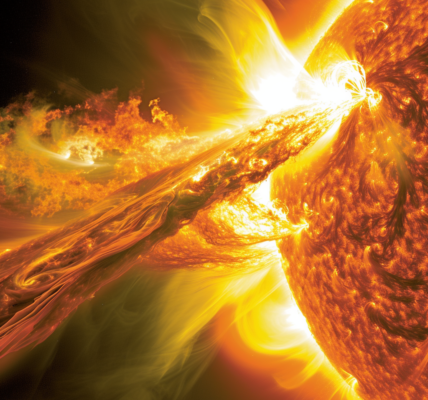Clouds have been found to disappear rapidly during a solar eclipse, according to a recent study by researchers from TU Delft and KNMI. The study revealed that diminishing sunlight during a solar eclipse can lead to the cooling of the ground, slowing down the rising air responsible for the formation of cumulus clouds, causing them to vanish almost instantly. Once the eclipse is over, the ground warms up again, leading to the formation of new cumulus clouds.
The research, published in Communications Earth and Environment, suggests that the disappearing clouds may have implications for proposed climate engineering ideas, as they can partly counteract the cooling effect of artificial solar eclipses.
While the effects of solar eclipses have been studied for centuries, the precise reaction of clouds to solar eclipses was previously unknown. The study, led by Ph.D. candidate Victor Trees, aimed to fill this gap in understanding. The researchers found that cumulus clouds over land are highly sensitive to solar eclipses, with the clouds beginning to disappear when just 15% of the sun is obscured. The clouds then reappear once the eclipse is over, indicating a clear correlation between solar eclipses and cloud behavior.
The study also highlighted the challenges faced in measuring solar eclipses from space. Satellite measurements during eclipses were previously unreliable due to the algorithms not accounting for the decrease in sunlight. However, the researchers were able to restore satellite measurements during solar eclipses by accurately calculating the percentage of the sun that is obscured for each location and time on Earth. This breakthrough allowed for the reliable measurement of clouds even during partial solar eclipses.
The findings shed light on the significant impact of solar eclipses on cloud behavior and provide valuable insights for climate and atmospheric studies. The research not only advances our understanding of the complex interactions between solar phenomena and Earth’s atmosphere but also has implications for potential climate engineering strategies.





